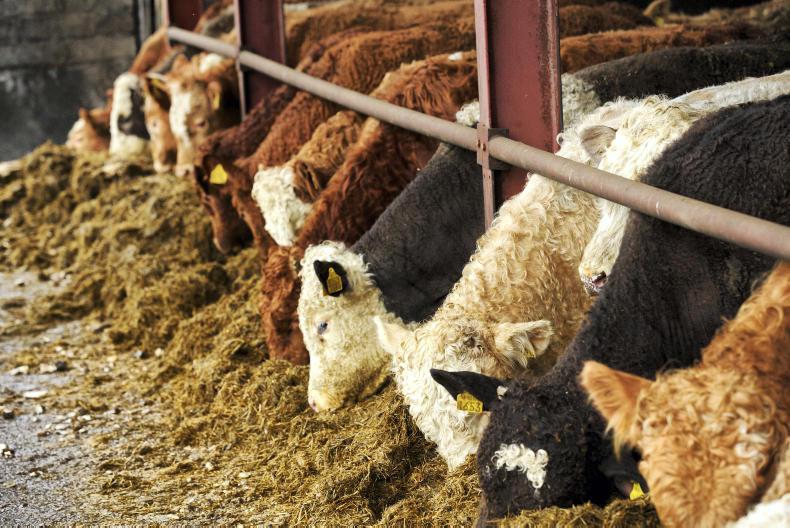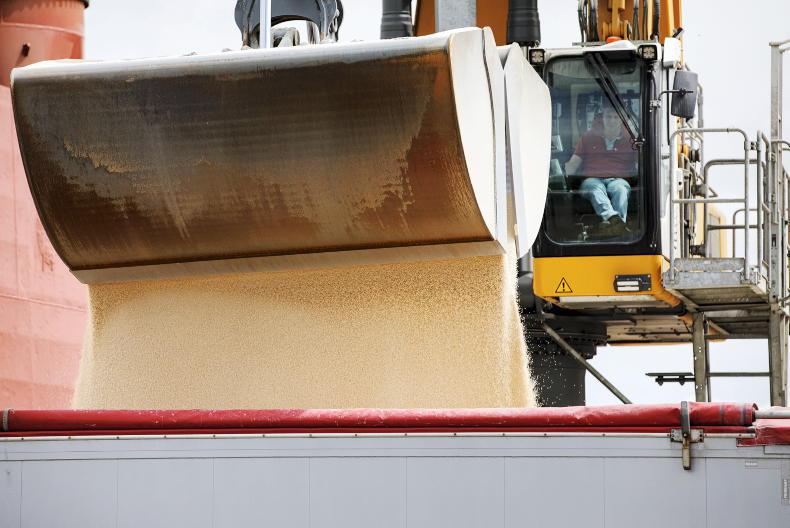Food and Drink Industry Ireland (FDII), which represents food and drink processors in IBEC, has launched its case for industry support to address the impact of Brexit on the sector.
It outlines in detail the exposure of the Irish food processing industry to the UK market, particularly for poultry (72%), beef (52%) and cheese (60%).
It also explains how it is the primary outlet for the produce of Irish farms and the level of employment dependent on the sector, particularly in more disadvantaged rural areas.
It also references the response of the EU Commission to the global crisis caused by the financial crash in 2008.
Then the Commission said that the “current global crisis requires exceptional policy responses” and the EU provided for measures “to remedy a serious disturbance in the economy of a member state”.
Ireland’s exposure
FDII argues that the exceptional event of a member that is a key market leaving the EU creates such a situation.
The report also demonstrates Ireland’s exposure to the UK market for overall food and drink at over 40%.
Cyprus, with a small economy, has 25% exposure, while the next largest, more comparable with Ireland, Denmark and the Netherlands only send around 10% of their food and drink exports to the UK.
This exposure, along with the unique importance the sector has in the Irish economy, is the basis for FDII’s case for “exceptional policy responses” and to include a general block exemption for state aid supports for the Irish food and drink sector in order to maintain and sustain economic activity and jobs.
Investment aids
The report suggests that these should be at three levels, starting with the Irish Government being allowed to introduce enterprise stabilisation measures.
In the medium term, it suggests the Irish Government should be allowed to introduce investment aids enabling development of technology, plant renewal and expansion, refinancing, market development and innovation.
The third pillar of support called for is export trade financing and export credit guarantees.
Irish farmers have a stake in a strong and competitive processing sector across all commodities and they are also the major employers in many areas of rural Ireland that don’t have immediate appeal to the big inward investments.
Of course, persuading the EU to be less stringent on state aid rules is one thing, persuading the Irish Government to find the funds is another, given pressures on State finances.
Read more
Full coverage: Brexit
Optimistic outlook for the agri-food sector in 2017 – Fine Gael
Food and Drink Industry Ireland (FDII), which represents food and drink processors in IBEC, has launched its case for industry support to address the impact of Brexit on the sector.
It outlines in detail the exposure of the Irish food processing industry to the UK market, particularly for poultry (72%), beef (52%) and cheese (60%).
It also explains how it is the primary outlet for the produce of Irish farms and the level of employment dependent on the sector, particularly in more disadvantaged rural areas.
It also references the response of the EU Commission to the global crisis caused by the financial crash in 2008.
Then the Commission said that the “current global crisis requires exceptional policy responses” and the EU provided for measures “to remedy a serious disturbance in the economy of a member state”.
Ireland’s exposure
FDII argues that the exceptional event of a member that is a key market leaving the EU creates such a situation.
The report also demonstrates Ireland’s exposure to the UK market for overall food and drink at over 40%.
Cyprus, with a small economy, has 25% exposure, while the next largest, more comparable with Ireland, Denmark and the Netherlands only send around 10% of their food and drink exports to the UK.
This exposure, along with the unique importance the sector has in the Irish economy, is the basis for FDII’s case for “exceptional policy responses” and to include a general block exemption for state aid supports for the Irish food and drink sector in order to maintain and sustain economic activity and jobs.
Investment aids
The report suggests that these should be at three levels, starting with the Irish Government being allowed to introduce enterprise stabilisation measures.
In the medium term, it suggests the Irish Government should be allowed to introduce investment aids enabling development of technology, plant renewal and expansion, refinancing, market development and innovation.
The third pillar of support called for is export trade financing and export credit guarantees.
Irish farmers have a stake in a strong and competitive processing sector across all commodities and they are also the major employers in many areas of rural Ireland that don’t have immediate appeal to the big inward investments.
Of course, persuading the EU to be less stringent on state aid rules is one thing, persuading the Irish Government to find the funds is another, given pressures on State finances.
Read more
Full coverage: Brexit
Optimistic outlook for the agri-food sector in 2017 – Fine Gael









SHARING OPTIONS